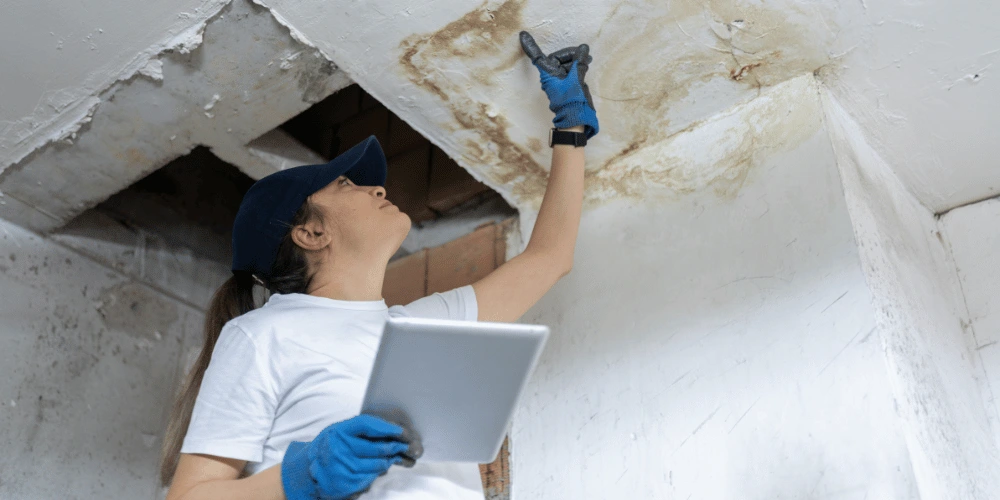The Hidden Cost of Lazy Property Management: Why Australian Landlords Are Making the Switch
Anúncios
The Growing Crisis in Australian Property Management
Widespread Dissatisfaction and Common Issues
Australian property management is facing a growing crisis, marked by deep dissatisfaction among both landlords and tenants.
It’s widely recognized that traditional property management services are failing to meet the needs of either party.
Complaints are common, revolving around neglected maintenance requests and poor communication practices.
For instance, it is not uncommon for tenants to wait weeks or even months for urgent repairs.
One tenant, Megan, experienced water leaking through her bedroom walls and light fixtures.
Despite video proof, her property manager initially dismissed her concerns, leading to significant stress and anxiety until the problem was finally acknowledged.
Landlords, too, face their share of frustrations.
Sam Shennan, a Sydney landlord with multiple properties, has endured unpaid rents and instances of property damage.
Shennan recounts having a tenant illegally run a business from one of his properties due to the property manager’s negligence.
Real-World Examples
The inadequacies of traditional property management practices can have serious consequences.
In one egregious example, a landlord discovered that their property manager had not collected rent for three and a half months, only to find significant damages left by the tenant.
Such stories highlight a systemic issue of unresponsiveness and lack of accountability in the industry.
Megan’s situation deteriorated to the point where every heavy rainfall brought anxiety due to the fear of her roof collapsing.
Eventually, the roof’s significant damage was confirmed, but only after months of resistance from the property manager.
Unfortunately, the property was quickly re-let without addressing these fundamental issues.
Neglected Maintenance and Poor Communication
Communication is a cornerstone of effective property management, yet it’s often where traditional property managers fall short.
Delays in responding to maintenance requests and reluctant communication contribute significantly to the dissatisfaction felt by tenants and landlords alike.
Without consistent updates and transparent processes, both parties are left in the dark, leading to mistrust and frustration.
These chronic issues not only strain the landlord-tenant relationship but also impact the financial bottom line.
Unpaid rent, questionable repair invoices, and property damage add hidden costs that could be mitigated by proactive and professional property management.
With these widespread problems, it’s clear that the traditional property management model in Australia is failing both landlords and tenants.
As we explore further, the financial and emotional toll of these deficiencies will become even more evident.
The True Cost of Poor Property Management
Financial Impacts
One of the most immediate and tangible costs of subpar property management is the financial burden borne by landlords.
Unpaid rent is a prevalent issue, often exacerbated by the lack of consistent follow-up from property managers.
Sam Shennan, a landlord in Coogee, recounts his distressing experience of discovering he hadn’t received rent for over three months due to his property manager’s negligence.
Another financial impact comes from questionable repair invoices.
It’s not uncommon for property managers to have arrangements with certain tradespeople, who then charge exorbitant fees for their services.
These invoices often go unquestioned, leaving landlords to foot the bill for potentially inflated costs.
Hidden Costs of Property Damage
Beyond the immediate financial impacts, there’s a hidden toll of property damage due to ignored maintenance requests.
Minor issues, if unattended, can escalate into major repairs.
For example, Megan, a tenant in Sydney’s Inner West, experienced significant water damage due to a neglected roof leak.
Despite providing video evidence, her property manager dismissed her concerns, which eventually led to extensive damage and the need for her to vacate the property temporarily.
 Damage brings more headache
Damage brings more headache
Emotional Toll
The emotional strain of dealing with unresponsive property managers is another significant yet often overlooked cost.
For tenants, the anxiety of living in poorly maintained properties can be immense.
Megan expressed the constant worry of her roof collapsing during heavy rains, an issue that could have been resolved promptly with attentive management.
Landlords are not immune to this emotional toll either.
The stress of uncertain income due to unpaid rents, coupled with the frustration of dealing with untrustworthy managers, can be overwhelming.
Sam, recounting his decade-long ordeal with unreliable property managers, emphasized how the constant letdowns eroded his confidence in the property management system.
As we consider the multifaceted costs of inadequate property management, it becomes clear that both landlords and tenants bear the brunt of this inefficiency.
Addressing these issues is crucial for a more functional property market, paving the way for innovative solutions that prioritize professionalism, transparency, and accountability.
Why Traditional Property Management is Failing
Low Profit Margins Leading to Decreased Service Quality
The primary issue with traditional property management in Australia is that these services often run on very slim profit margins.
This financial strain means property managers struggle to deliver quality service.
With tight budgets, managers are frequently forced to cut corners.
Routine maintenance may be delayed, while communication with tenants and landlords suffers.
Over time, the lack of resources fosters an environment where neglect and inefficiency become the norm.
Lack of Professionalism and Commitment
Another pervasive issue in the industry is the lack of professionalism and commitment from property managers.
Many of them view the role as a mere stepping stone to other, more lucrative positions within the real estate sector.
This results in a high turnover rate among managers, and those who remain often lack genuine dedication to their duties.
As Jeremy Martin, founder of the innovative platform Landlord, points out, “It’s these property managers we wish to elevate.”
Yet, until systemic changes are made, property owners are left dealing with managers who do not take pride in their work.
Absence of Accountability and Transparency
A third significant problem is the absence of accountability and transparency in traditional property management systems.
Property managers often submit questionable invoices for repairs, which can inflate costs for landlords.
As one landlord noted, “They always have the tradies they get a referral fee off, so they are overpriced invoices.
That’s stock standard with all of them.”
This lack of transparency makes it difficult for property owners to trust their managers and leads to a breakdown in the landlord-manager relationship.
As these systemic issues accumulate, the need for a new approach to property management becomes ever more apparent.
Moving forward, the focus must be on improving transparency, professionalism, and accountability within the sector.
The Evolution of Property Management Solutions
The landscape of property management in Australia is undergoing a significant transformation to address the pervasive issues landlords and tenants face.
Traditional, agency-driven property management practices are being challenged by innovative platforms like Landlord, which aim to enhance service quality and foster genuine relationships between owners and property managers.
Let’s explore how these solutions are evolving to create a better experience for all parties involved.
Revolutionizing Property Management Connections
One of the most critical innovations is the development of platforms that directly connect landlords with top-tier property managers.
Platforms like Landlord cut out the middleman of traditional agencies, allowing property owners to establish personal relationships with the managers responsible for their investments.
This direct connection fosters trust and ensures that property managers are more accountable and invested in the properties they oversee.
Rigorous Vetting for Quality Assurance
Quality assurance is a top priority for these new platforms.
To be featured on Landlord, for instance, property managers must maintain a minimum 4.5-star rating on major review sites such as Realestate.com.au, RateMyAgent, and Google Reviews.
This strict vetting process ensures that only property managers who demonstrate professionalism, responsiveness, and a commitment to high standards can join the platform.
Landlord founder Jeremy Martin personally meets with potential managers and inspects their offices and property management systems to further guarantee their suitability ‘.
Establishing Important Personal Relationships
Establishing strong personal relationships between landlords and property managers is crucial for successful property management.
Unlike traditional agencies that assign managers regardless of fit, innovative platforms encourage direct communication and tailored service.
This approach not only improves the experience for landlords but also provides a more responsive and reliable point of contact for tenants.
Embracing these innovative property management solutions sets the stage for a more efficient and harmonious rental market.
Moving forward, the emphasis will be on maintaining transparent and honest communication, professionalizing services, and balancing the needs of both owners and tenants.
By doing so, the property management industry in Australia aims to resolve longstanding issues and significantly improve overall satisfaction for all involved.
Benefits of Making the Switch
Switching to innovative property management platforms like Landlord comes with a host of benefits, both financial and practical. Here, we explore the key advantages that make the switch worthwhile for both landlords and tenants.
Financial Incentives
One of the most compelling reasons for landlords to transition to new property management services is the attractive financial incentives.
Upon signing up with Landlord, owners can receive up to two weeks of rent, amounting to a welcome bonus of up to $5000.
This immediate financial relief can ease the burden of transitioning and make the change more appealing.
Tenants also benefit financially when their landlords switch to better-performing property managers.
For example, they receive $50 off their rent for the following week, providing them with immediate savings and a sense of appreciation for the improved management.
Seamless Transition Process
Many landlords dread the process of switching property managers due to the perceived hassle and complexity involved.
However, platforms like Landlord are designed to make this transition as seamless as possible.
According to Sydney landlord Sam Shennan, the switch was surprisingly smooth and free of the usual frustrations that come with changing management.
This ease significantly lowers the barrier for landlords considering making the move to a more responsive and professional property management team.
Improved Service Quality and Communication Standards
One of the defining features of new property management solutions is their commitment to high standards of service and communication.
Landlords and tenants often face significant issues due to poor communication and neglected service requests.
By connecting landlords with quality property managers who are thoroughly vetted and rated at least 4.5 stars on multiple review sites, platforms like Landlord ensure that only the best professionals handle properties.
This improves overall management quality and fosters better communication between all parties involved.
Jenna Hawkings, head of property management at Laing+Simmons Parramatta, emphasizes the importance of honesty and balance, noting that property managers need to remain transparent and educate both owners and tenants.
By making the switch, both landlords and tenants can enjoy a more reliable and efficient property management experience, moving away from the common pitfalls of traditional systems.
With these incentives and improved standards, the transition promises to be a step towards a more professional and satisfying property management industry.
The Future of Property Management
Emphasis on Transparency and Honest Communication
A transparent and honest communication channel between landlords, tenants, and property managers is vital for efficient property management.
It builds trust and ensures that any issues can be addressed swiftly.
For example, the introduction of platforms like Landlord prioritizes honest and open communication.
Tenants and landlords are better informed and more satisfied with the resolution process of maintenance requests, as property managers act as the vital liaison who educates both parties about the law and offers unbiased solutions.
Balancing Owners’ and Tenants’ Needs
A successful property management service balances the needs of both property owners and tenants.
Property managers must understand the importance of maintaining the satisfaction of both parties.
They ensure that landlords’ properties are well maintained while also addressing the tenants’ living conditions.
One of the advantages of using innovative platforms like Landlord is the ability to find property managers who exhibit professionalism.
These managers are vetted thoroughly, ensuring they are committed to their roles and responsibilities.
Professionalization of Property Management Services
The future of property management involves increased professionalization.
Property managers must demonstrate a high level of skill and commitment to their work.
Initiatives like Landlord’s strict 4.5-star rating requirement and vetting process help elevate property managers who take pride in their work.
This shift towards professional standards ensures that landlords receive dependable service and tenants live in well-maintained properties.
Enhancing professionalism is key for long-term satisfaction and efficiency in property management.
Switching to such advanced property management solutions not only ensures a seamless transition but also significantly uplifts the overall standards and experiences within the industry.







